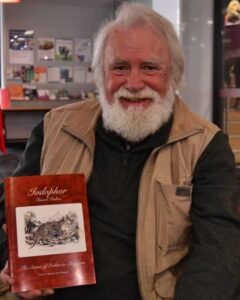
Our speaker on Tuesday, 26 September, is a Launceston-based Nuclear Medicine Scientist, medical researcher, historian, and past club president,
Paul A.C. Richards AM. Paul holds a Master of Science degree from Johns Hopkins University in Radiation Sciences.
He will address us on his research spanning 55 years as a Nuclear Medicine Scientist on iodine deficiency in Tasmania and his work internationally.
Tasmania is recognised globally as a mildly iodine-deficient state of Australia and has grappled with iodine deficiency from early settlement in the 1830s until 2009, when a mandatory prophylactic measure, iodised salt, was added to bread in Australia and New Zealand.
Paul was a Rotary Foundation recipient in 1973 and Sir Robert Menzies Scholar of the Year in 1978. He has studied and undertaken research in the UK, USA, Sweden, and Japan. He is currently the Secretary/Treasurer of the LGH Historical Committee and Curator of Arts at the Launceston General Hospital. Paul is also a member of The Launceston Historical Society (LHS) and the Tasmanian Aviation Historical Society (TAHS).
Paul is the convenor/founder of the TAHS “IN THE AIR” Aviation Seminar, successfully held just two weeks ago at the Launceston Church Grammar School. He has published several scientific articles and recently published his trilogy on iodine deficiency. Later this year, Paul will publish a history of the Royal Flying Doctor Service -Tasmanian Section 1960-2023, his 36th book.
Over the years, Paul has given several talks on nuclear medicine, local history, art, and his books, and he continues his research as an Honorary Associate Researcher at the University of Tasmania.
In 2015, Paul was appointed a Member of the Order of Australia (AM) for his major research in radiation sciences and community work in establishing Spurr Wing Inc. and the Cancer Information Support Service in the early 1980s when he was president of the West Launceston Rotary Club.
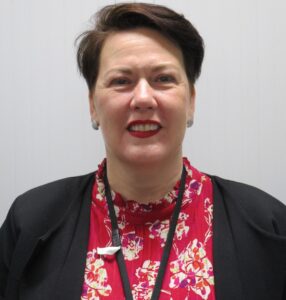 Our guest speaker on Tuesday, 22 October will be Karen Heathcote, project manager. design and construction for the Launceston City Council.
Our guest speaker on Tuesday, 22 October will be Karen Heathcote, project manager. design and construction for the Launceston City Council.
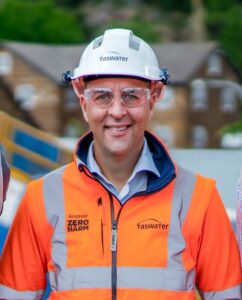 Andrew Truscott from TasWater, an Environmental Engineer with over twenty years’ experience is the project director for the Tamar Estuary River Health Action Plan. He is the guest speaker for our meeting on 24 September.
Andrew Truscott from TasWater, an Environmental Engineer with over twenty years’ experience is the project director for the Tamar Estuary River Health Action Plan. He is the guest speaker for our meeting on 24 September.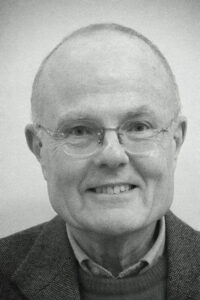 The guest speaker for our meeting on 23 April 2024 is Dr Stan Gottschalk. Stan was born in the US in 1946. He grew up in Florida and studied at the Massachusetts Institute of Technology (MIT) before emigrating to Australia in 1970, finishing his PhD in Fluid Mechanics at the University of Melbourne (1973).
The guest speaker for our meeting on 23 April 2024 is Dr Stan Gottschalk. Stan was born in the US in 1946. He grew up in Florida and studied at the Massachusetts Institute of Technology (MIT) before emigrating to Australia in 1970, finishing his PhD in Fluid Mechanics at the University of Melbourne (1973).
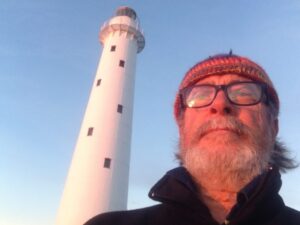 Our guest speaker on Tuesday, 27 February will be Dr Scott Bell GP.
Our guest speaker on Tuesday, 27 February will be Dr Scott Bell GP.
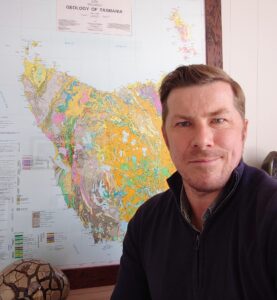 Andrew was born in Launceston and went to East Launceston Public School followed by Launceston Church Grammar School where I first discovered my interest in mines. Here is his story:
Andrew was born in Launceston and went to East Launceston Public School followed by Launceston Church Grammar School where I first discovered my interest in mines. Here is his story: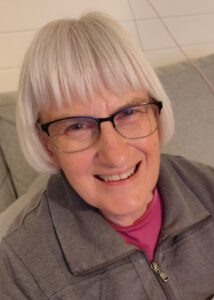
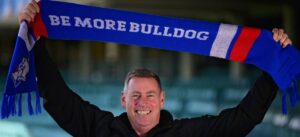
 Our speaker on Tuesday, 26 September, is a Launceston-based Nuclear Medicine Scientist, medical researcher, historian, and past club president, Paul A.C. Richards AM. Paul holds a Master of Science degree from Johns Hopkins University in Radiation Sciences.
Our speaker on Tuesday, 26 September, is a Launceston-based Nuclear Medicine Scientist, medical researcher, historian, and past club president, Paul A.C. Richards AM. Paul holds a Master of Science degree from Johns Hopkins University in Radiation Sciences.
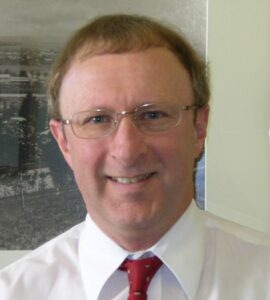 Our speaker on Tuesday, 18 April is Launceston-based surveyor and historian John Dent OAM. John will outline the difficulties of farming and surviving in the 1800s. A number of recent archaeological digs in the area have brought some new understanding of life as a settler at Rowella.
Our speaker on Tuesday, 18 April is Launceston-based surveyor and historian John Dent OAM. John will outline the difficulties of farming and surviving in the 1800s. A number of recent archaeological digs in the area have brought some new understanding of life as a settler at Rowella.
